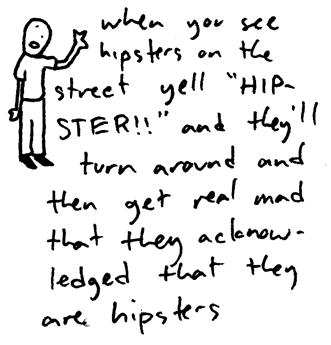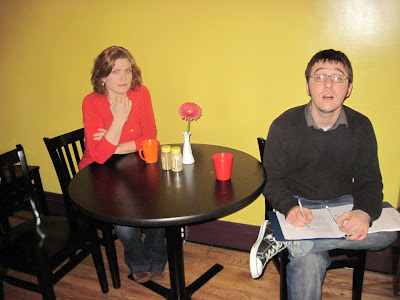Some Thoughts On Revision: Hardly a Complete Treatment
I am going to write a short article about revision. I will revise it three or four times, put it on the blog (or maybe send it to TR for her thoughts), maybe revise it again, make some last minute changes and, ten minutes after I’ve posted it, wish I had worked through three or four more drafts. That’s how it works. I’m going to make these thoughts public, in writing. That is scary. I am going to make it public before people I respect, and before whom I don’t wish to embarrass myself or damage whatever reputation I possess. In fact, I could spend two hours per day for the next week working on this and, at the end of the week, hate it. But I’m not going to. I just wanted you to know. So...
Among the many questions that arise, subside, and arise again over time is the difficult question of whether one should engage revision. To even use the word, “engage,” is a qualification of its own and merits discussion. Some (almost all) writers claim that revision is a need as vital as water, while others claim that revision intrudes upon their “purest” thought/emotion. These latter stick–at least in public– to Horace’s “first thought, best thought” declaration (to which even he doesn’t seem to have adhered). There are few poets, from any time, whose work has not undergone revision at the poet’s hand. William Blake worked from “divine inspiration,” but Blake was, by profession, an engraver and printer. He gouged words and pictures into copper plates as part of a rather painstaking, expensive, and time consuming process that led to his art. I think we can assume he revised his written “masters” once or twice before he dragged out his numerous other tools. Revision, after all, is one more tool in the box (I hate that metaphor, but it serves well enough, I suppose). Not to do so might have meant a re-making (and the financial cost) a project he believed he’d finished. He was carving it into metal, so it had better be “right.” This is, however, not to say that the end product lacked “divine” influence, whether from the Christian God, or one or more muses. British Romantics often laid claim to such inspiration. And then came William Wordsworth. Rather, then “went” Wordsworth.
After he published his “Lines Composed a Few Miles Above Tinern Abbey,” which was recognized even then as a masterpiece, he claimed that it was written in one, muse-inspired sitting, during which he was at one with nature. Gosh! How about those muses! Then he died.
This means, of course, that other people perused his belongings, one item of which was a steamer trunk. When opened, they discovered that it was full of one thing: drafts of “Tintern Abbey.” I relate the Wordsworth anecdote because it serves as a lesson in how poets really view revision. All of us revise, and we should. Maybe not fifteen minutes after the first draft is written, but it needs doing. If there is no other reason, there is this: three days (or three minutes) after the initial composition–that is, after the muses whisper their honeyed words into our ears–we’ve grown smarter, more in touch with language, the universe, and ourselves; we turn the honey into mead. The muses did not show up and say, “here, have a poem. Write that sucker down and be remembered through the ages.” I don’t think that’s how the muses–whatever that means–work. It seems to me that the first boost of inspirational goodness comes from “that place.” Great. But it’s a starting point. They’ve shown up and given you a really good idea, an image, a few lines or phrases, a sound, but it is up to us to make something of it. We can see this in myriad artists in all forms who claim they don’t revise; even those who decry it as nearly blasphemy. Turns out, they all revise. Even Michelangelo revised, regardless of which form he worked on a given day.
There are many, many reasons to revise. Understand, I do not mean “editing.” Editing is commas and periods and spelling. I mean “re-thinking,” “re-seeing,” and making what you said be said better than you said it last time. The desire to not look/sound/feel “dumb” before our peers is a pretty solid reason. I think of a man I worked for some years ago, whose English usage–he was American–was so bad that, as a joke, I created The John K. Doe International Dictionary, which operated as a spoof (only sort of) spelling and translation guide. John used the sound, “irregardless” roughly three times per hour. I worked there for 4 ½ years. During that time, I struggled to not spell or to pronounce words like John, speaking properly in his presence without trying to sound arrogant. Now, almost 20 years later, I sometimes find myself having to correct myself, because I used a “Doe-ism” in conversation. Like all of us, upon hearing ourselves commit similar offenses, I roll my eyes, shake my head, and re-speak. This is revision.
Consider it from a teacher’s perspective, since all writers are, inevitably, whether we want to be, or not, teachers. If we create a document in which appear grammar, usage, spelling, or other errors, and a student (audience) points them out, I don’t care how hip, nihilistic, drunk, hip, or intelligent we are, the verbal stumbling and red face washes over us immediately. This is less because we handed out material containing errors, but that we are an authority figure who passed out such material. And, yes: the writer must be an author-ity figure. Sorry. Consider how much worse it feels to misrepresent oneself or one’s abilities. Where writing, using the language, and presenting new ideas are concerned, a writer commands authority or, at least, demands attention for a few lines in time. We have to know “our stuff,” and we want what we’ve written to be the best representation of our minds, and our creative abilities. This is how we convince our audience to read/listen to anything we have to say, which is difficult enough. Making the effort to say it better is a way we show them, and ourselves, both respect and attention. Otherwise, we slobs with pens. It’s also how we, as artists, “own” our creations.
Another place where we meet the problem of revision head-on is when we read our work to audiences. How many times have you read , and changed a word as you approached it? Or stumbled over a line and realized, as you spoke the words, you didn’t like them?
One final example, and I’ll stop harping on revision for a little while, and let you, gentle readers, rend the flesh from the bones of these incomplete and imperfect thoughts. Think back to when you were a student: fifth grade, twelfth grade, freshman year in college last semester of graduate school, it doesn’t matter. How proud of your work were you to turn in an unrevised assignment? This is a popular, “appear smart” (when the smart you are is probably smarter than the facade you put forth), and “see how cool I am” practice that, I think, reaches into that seemingly primal desire we all have to “make art now” and to really own our “first thought, best thought” desires (which probably stem from our desire to be connected to something divine...but who knows?). I used to make this claim regularly, even though it wasn’t always true. And I–like I suspect, you–receive that writing–or even something I’d spent effort upon–back a couple of weeks later, re-read it, and think something to the effect of, “Oh my god, I did NOT turn this in...” As I suggest above, two weeks later, you’re ability to use the language, to refine your own ideas, improves dramatically with a little time away from the piece.
Revision makes our writing better. That is revision’s whole point. Since writing is also a way of teaching ourselves things, of coming to grips with difficult concepts (personal, or not), it makes us smarter. There is a caveat, here, that should not stop us from revising our work, and it is this. As you revise, ALWAYS keep copies of earlier drafts. Over-revising can, indeed, ruin your work. Deleting that stanza may seem like a great idea on Tuesday, but on Thursday, prove the death of the poem. This happened to me. I deleted the last stanza of a 90 line poem, and can’t reproduce the stanza. The poem now lives in my “dead poem” file because I over-revised it (read as: murdered) the poem. But I learned the lesson, and that is the only murder I’ve ever committed.
Post Script: While digging through a box of old “papers,” I re-discovered the lost stanza. I’ll have to read that poem at a SexPo in the future...














































